The verse fables of Jean de La Fontaine are one of the classics of French literature, and below you will see English translations into verse by Elizur Wright, first published in 1841: The Fables of La Fontaine. The illustrations are by Grandville as printed in an 1870 French edition: Fables de La Fontaine, and you can read about both La Fontaine and Grandville at Wikipedia.
Here are five of the fables:
The City Rat and the Country Rat
A city rat, one night,
Did, with a civil stoop,
A country rat invite
To end a turtle soup.
Upon a Turkey carpet
They found the table spread,
And sure I need not harp it
How well the fellows fed.
The entertainment was
A truly noble one;
But some unlucky cause
Disturb'd it when begun.
It was a slight rat-tat,
That put their joys to rout;
Out ran the city rat;
His guest, too, scamper'd out.
Our rats but fairly quit,
The fearful knocking ceased.
'Return we,' cried the cit,
To finish there our feast.
'No,' said the rustic rat;
'To-morrow dine with me.
I'm not offended at
Your feast so grand and free,—
'For I've no fare resembling;
But then I eat at leisure,
And would not swap, for pleasure
So mix'd with fear and trembling.'
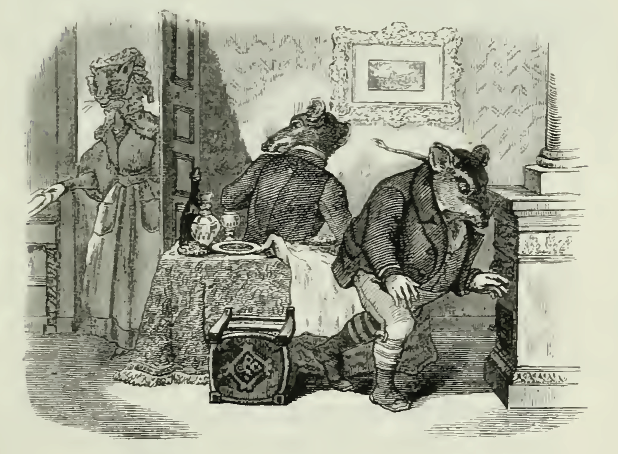
The Heifer, the Goat, and the Sheep in Company with the Lion
The heifer, the goat, and their sister the sheep,
Compacted their earnings in common to keep,
'Tis said, in time past, with a lion, who sway'd
Full lordship o'er neighbours, of whatever grade.
The goat, as it happen'd, a stag having snared,
Sent off to the rest, that the beast might be shared.
All gather'd; the lion first counts on his claws,
And says, 'We'll proceed to divide with our paws
The stag into pieces, as fix'd by our laws.'
This done, he announces part first as his own;
''Tis mine,' he says, 'truly, as lion alone.'
To such a decision there's nought to be said,
As he who has made it is doubtless the head.
'Well, also, the second to me should belong;
'Tis mine, be it known, by the right of the strong.
Again, as the bravest, the third must be mine.
To touch but the fourth whoso maketh a sign,
I'll choke him to death
In the space of a breath!'
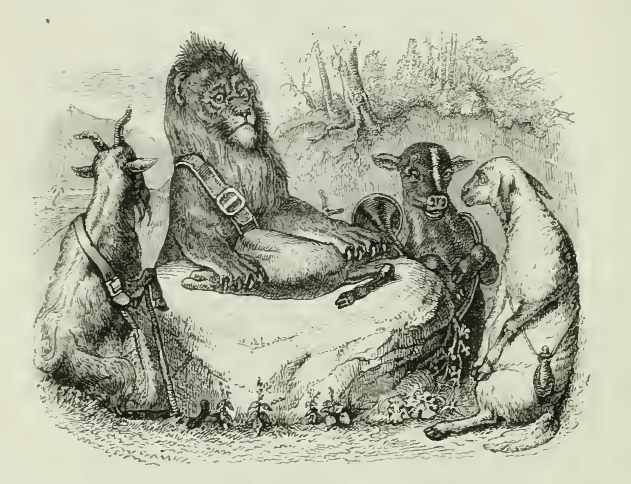
The Thieves and the Ass
Two thieves, pursuing their profession,
Had of a donkey got possession,
Whereon a strife arose,
Which went from words to blows.
The question was, to sell, or not to sell;
But while our sturdy champions fought it well,
Another thief, who chanced to pass,
With ready wit rode off the ass.
This ass is, by interpretation,
Some province poor, or prostrate nation.
The thieves are princes this and that,
On spoils and plunder prone to fat,—
As those of Austria, Turkey, Hungary.
(Instead of two, I've quoted three—
Enough of such commodity.)
These powers engaged in war all,
Some fourth thief stops the quarrel,
According all to one key,
By riding off the donkey.
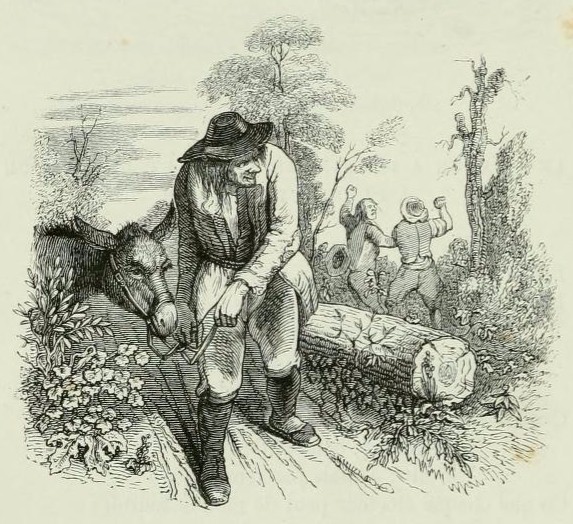
Death and the Woodman
A poor wood-chopper, with his fagot load,
Whom weight of years, as well as load, oppress'd,
Sore groaning in his smoky hut to rest,
Trudged wearily along his homeward road.
At last his wood upon the ground he throws,
And sits him down to think o'er all his woes.
To joy a stranger, since his hapless birth,
What poorer wretch upon this rolling earth?
No bread sometimes, and ne'er a moment's rest;
Wife, children, soldiers, landlords, public tax,
All wait the swinging of his old, worn axe,
And paint the veriest picture of a man unblest.
On Death he calls. Forthwith that monarch grim
Appears, and asks what he should do for him.
'Not much, indeed; a little help I lack—
To put these fagots on my back.'
Death ready stands all ills to cure;
But let us not his cure invite.
Than die, 'tis better to endure,—
Is both a manly maxim and a right.
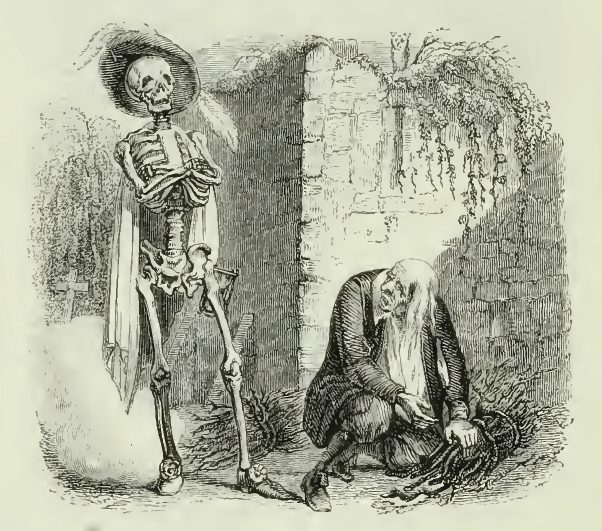
The Two Mules
Two mules were bearing on their backs,
One, oats; the other, silver of the tax.
The latter glorying in his load,
March'd proudly forward on the road;
And, from the jingle of his bell,
'Twas plain he liked his burden well.
But in a wild-wood glen
A band of robber men
Rush'd forth upon the twain.
Well with the silver pleased,
They by the bridle seized
The treasure-mule so vain.
Poor mule! in struggling to repel
His ruthless foes, he fell
Stabb'd through; and with a bitter sighing,
He cried, 'Is this the lot they promised me?
My humble friend from danger free,
While, weltering in my gore, I'm dying?'
'My friend,' his fellow-mule replied,
'It is not well to have one's work too high.
If thou hadst been a miller's drudge, as I,
Thou wouldst not thus have died.'
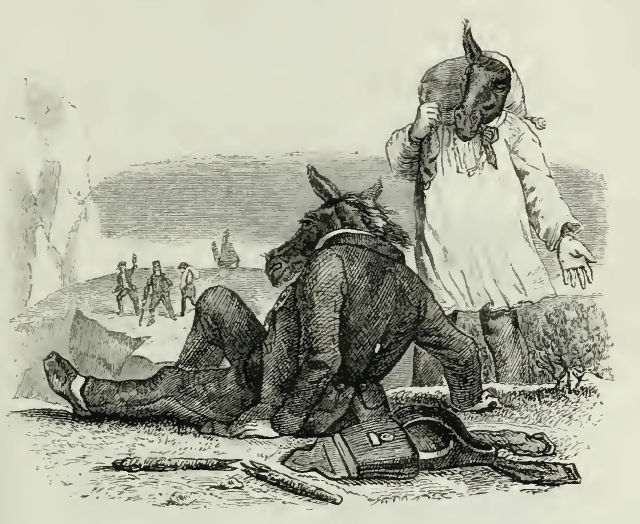
No comments:
Post a Comment
Comments are limited to Google accounts. You can also email me at laurakgibbs@gmail.com or find me at Twitter, @OnlineCrsLady.